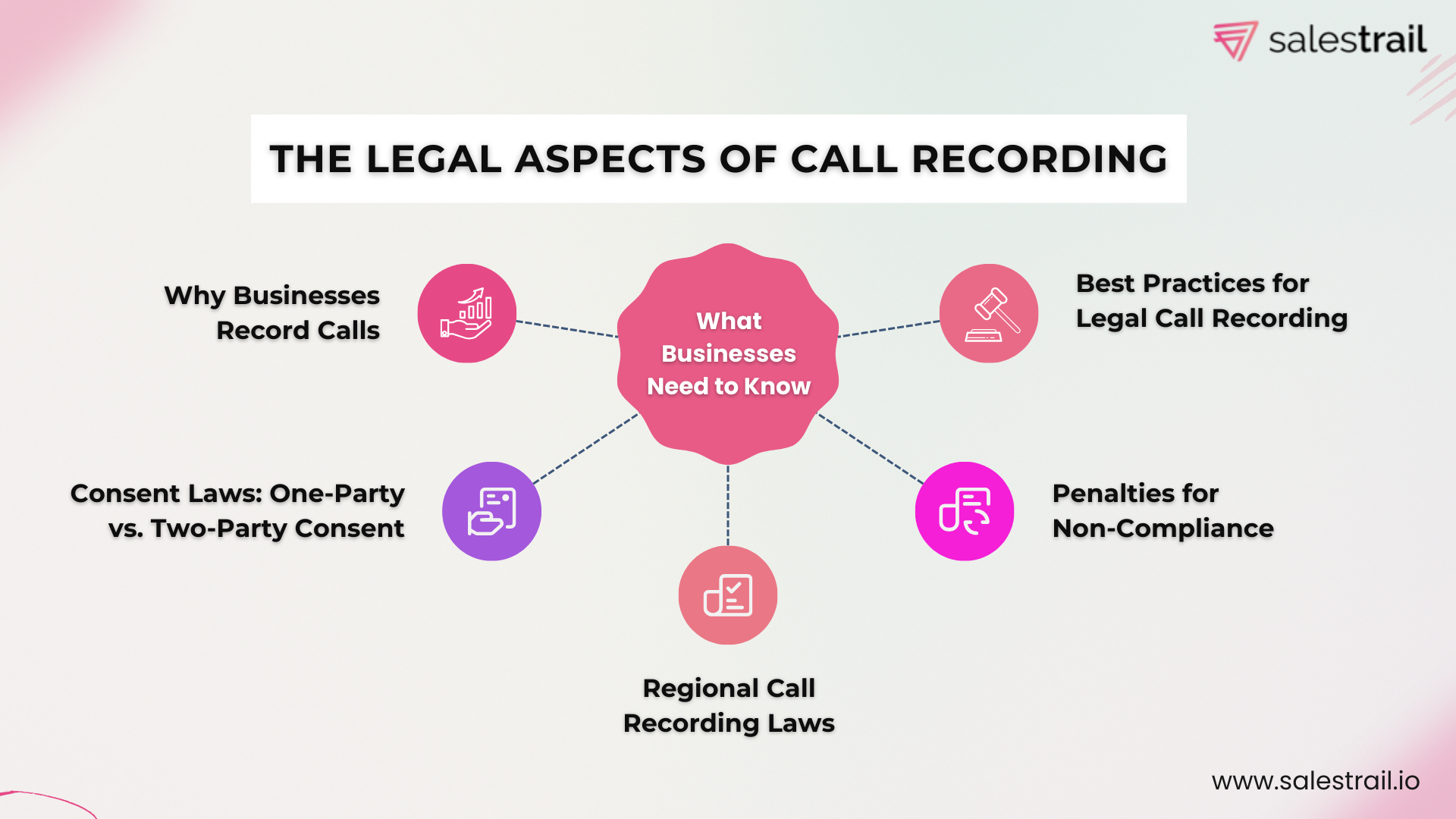
Call recording is a powerful tool for businesses. It improves customer service, supports staff training, ensures quality assurance, and helps resolve disputes. But before you hit “record,” there’s one thing every business must fully understand—the law.
Recording calls without the proper legal framework in place can expose your company to fines, lawsuits, or serious reputational damage. In this blog, we’ll walk you through the key legal considerations around call recording, what consent means, and how to ensure compliance no matter where you operate.
Businesses across industries use call recording to:
But while the benefits are clear, so are the risks of doing it wrong. Recording a phone call without consent or transparency can be considered a breach of privacy, depending on the jurisdiction.

The legality of recording calls primarily hinges on consent—but how much consent is required varies widely.
In one-party consent jurisdictions, only one person involved in the call (which can be the person recording) needs to know and agree to the recording. This is common in many U.S. states.
In two-party consent regions, all participants in a call must be informed and give consent to the recording. Failing to do so is illegal—even if one party consents.
🔎 Tip: Even in one-party consent states or countries, it’s good practice to notify all parties to avoid misunderstandings and build trust.
The U.S. has a mix of one-party and two-party consent laws depending on the state.
Businesses operating across state lines must comply with the strictest applicable law—which often means following two-party consent standards.
Under the General Data Protection Regulation (GDPR), call recordings are considered personal data. Businesses must have a lawful basis for recording, such as:
Transparency is key. Companies must inform participants that calls are being recorded and why.
Post-Brexit, the UK follows its version of GDPR known as UK GDPR. Businesses must:
Canadian law requires two-party consent under the Personal Information Protection and Electronic Documents Act (PIPEDA).
Businesses must:
Regulations in Asia vary significantly from country to country, and in many cases, call recording is governed under general data protection and telecommunications laws.
🔍 Note: Because legal frameworks in Asia are developing and may vary within regions, businesses should consult local legal experts and always err on the side of informed consent and data security.
Call recording is governed by state laws in Australia. Some states require two-party consent, and others allow one-party consent. Nationally, the Telecommunications (Interception and Access) Act 1979 prohibits intercepting live calls without consent.
To stay compliant across regions and industries, businesses should follow these best practices:
Failure to follow legal call recording protocols can result in:
The key is to balance insight with integrity. By understanding your region’s laws, being transparent with your customers, and using reliable, compliant tools, you can make call recording a valuable asset—without legal headaches.
📞 Looking for a legally compliant, mobile-friendly call recording solution?
Salestrail tracks and records mobile and WhatsApp calls while supporting regional consent laws and data privacy standards. It’s available on Android and iOS, so your team can stay compliant—wherever they are.
👉 Visit www.salestrail.io to record calls responsibly and build trust with every conversation.
Contact us to discover more or Book a free Demo to try Salestrail today!
These Stories on Salesforce
Fredrikinkatu 33 A,
00120 Helsinki, Finland
Call :+358 40 768 3813
Email: support@liid.com
No Comments Yet
Let us know what you think